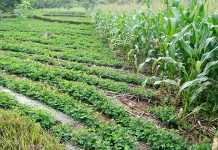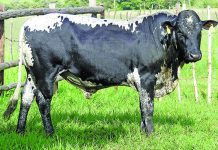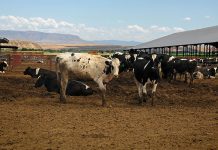“The Land Bank has finally turned the tide,” Professor Herman van Schalkwyk, acting chairperson of the Land Bank, told a joint public committee on finance and land affairs in parliament in Cape Town, after the bank’s turnaround strategy was approved by the full board. he strategy was developed without consultants and a bottom-up approach ensures that all staff members are held accountable. It consists of a three-stage programme beginning with a clean-up, followed by a stabilisation programme, which in turn will lead to a long-term sustainability phase. he bank’s focus will be on a developmental niche market, as it simply can’t compete with commercial banks in terms of mainstream financing, Van Schalkwyk said.
Land Bank interim CEO Phakamani attributed past failures to individuals becoming more powerful than the structures within which they operated. This is being addressed through the clean-up programme, spearheaded by Delanie Lambrecht, formerly of Ernest & Young. Private investigators and the police are currently working on several criminal cases that resulted from the forensic investigations conducted by the bank, Lambrecht told parliament. These include fraudulent transactions regarding the bank’s IT deal with the SA police, AgriBEE transactions, Micro Agricultural Financial Institutional Scheme of South Africa transactions and Land Development Fund transactions that fell outside the mandate of the bank. O ther actions encompassed by the clean-up include the recovery of unauthorised payments of R4,7 million made to the previous CEO, Alan Mukoki, and the sale of a R4,2 million Cape Town flat used by the bank’s senior management.
Hadebe explained that medium-term plans include partnership-building with agribusinesses, and “hand-holding” of new farmers with a strong emphasis on after-care service. “We would rather spend money on support than have bad loans,” he said. A long-term goal is to see the Land become a one-stop-agri-shop for emerging farmers, Hadebe added. V incent Potloane, the new Land Bank treasurer and person responsible for the stabilisation programme, confirmed that only 35 out of 114 critical positions are currently filled at the bank. e added that the bank will dispose of all Land Development Fund Unit loans by 2010 and non-performing loans will be recovered. He is hopeful that 75% of these loans will be recovered by March 2009.
“The bleeding has stopped,” Hadebe said, referring to a recovered liquidity of R2,6 billion and a maturity profile that has been extended from only three months to over one year. bank’s cost-to-income ratio has also improved to 73% as of September 2008. “We are seeing big clients that left us returning and professionals are once again willing to build their careers with us,” said. – Wouter Kriel








